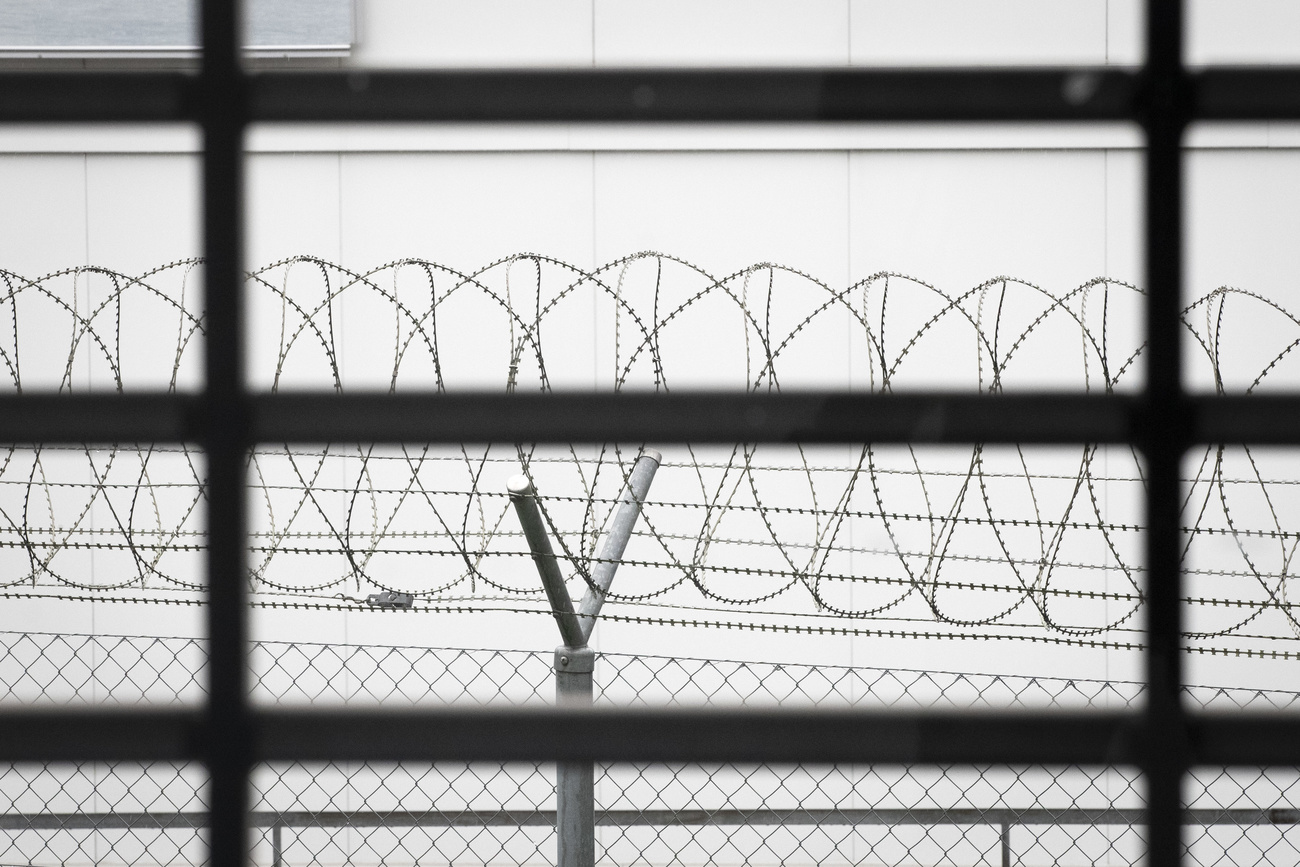
High use of remand punishment in Switzerland, says report

In Switzerland, suspected criminals are held in pre-trial detention more often than in other countries, and these prisoners are more likely to commit suicide, reports the SonntagsBlick newspaper.
A study carried out for the paper by the National Centre on Execution of SentencesExternal link says courts in the Alpine country order preventive detention, or remand, more often than elsewhere, particularly neighbouring countries Germany, Austria and Italy. This is despite the fact that prisoners on remand are more than twice as likely to commit suicide, according to the study.
It says that 60% of suicides in Swiss prisons happen in pre-trial detention, compared with a European average of 37.5%. SonntagsBlick writes that this is probably because in almost all cantons pre-trial detention is carried out as solitary confinement.
The National Commission for the Prevention of TortureExternal link has criticised the harshness of conditions for remand prisoners several times in recent years, the paper writes, with its vice-president Leo Näf calling it the “most rigid and strictest form of detention”.
In recent years, there has been debate around how to ease preventive detention rules. Näf told the paper that many prison and public authorities are open to this in principle, but that implementation is difficult because some staff and public prosecutors are against it.
Suspects can be remanded to prevent them from fleeing, becoming a threat or negatively influencing criminal investigations. They are nevertheless to be presumed innocent until proven guilty, according to the law.

In compliance with the JTI standards
More: SWI swissinfo.ch certified by the Journalism Trust Initiative


















![The four-metre-long painting "Sonntag der Bergbauern" [Sunday of the Mountain Farmers, 1923-24/26] had to be removed by a crane from the German Chancellery in Berlin for the exhibition in Bern.](https://www.swissinfo.ch/content/wp-content/uploads/sites/13/2025/12/01_Pressebild_KirchnerxKirchner.jpg?ver=1ea8acae)










You can find an overview of ongoing debates with our journalists here . Please join us!
If you want to start a conversation about a topic raised in this article or want to report factual errors, email us at english@swissinfo.ch.